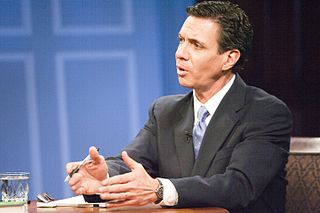A Quote by Joshuah Bearman
Sometimes, I'll read a news story and there will be one line about something else, and I'll find it interesting and look into it. That can often turn into an entire story on its own.
Related Quotes
One of the things that I was kind of holding on to from 'The Daily Show' was there was an exhaustion that I would feel because we just kind of got caught up in the news cycle. You tell a story, and that's an interesting story, and then the next day we have to drop it and talk about something else. That's so unfair to the story and the people.
I read the paper every day. There are certain subjects that will catch my attention. I have an entire file of articles. Of course I make up the story, especially since most criminals are not very smart and fictional crime must be clever. I have to make sure the story I am telling is interesting and realistic. In this book I went on line and found out the manners of codes. I thought it interesting to use them as a jumping off point.
I find interesting characters or lessons that resonate with people and sometimes I write about them in the sports pages, sometimes I write them in a column, sometimes in a novel, sometimes a play or sometimes in nonfiction. But at the core I always say to myself, 'Is there a story here? Is this something people want to read?'
It's hard to tell if anyone's interested in reading a serialized story. But it's interesting to put in a cliffhanger each week. That was popular in old comic strips. They'd write a weekend story different from the daily strip. So people follow one story day to day, and a separate story on weekends. If you read them, you think "I'll read two more." Then you're like "I gotta find out!" And you read 500 more.
In any case, you read with exasperation or amusement the multiple errors in a story-and then turn the page to national or international affairs, and read with renewed interest as if the rest of the newspaper was somehow more accurate about far-off Palestine than it was about the story you just read. You turn the page, and forget what you know.
I always think it's interesting to switch genres, because if I read a script and I know exactly how to manifest a story, I don't really want to do it anymore, because I've already done it in my head. It becomes less interesting. If I read something that's challenging, I get really passionate and usually fall in love with it, because I feel I need to do it. I need to tell the story; I need to find a way to make it happen.
Too many writers think that all you need to do is write well-but that's only part of what a good book is. Above all, a good book tells a good story. Focus on the story first. Ask yourself, 'Will other people find this story so interesting that they will tell others about it?' Remember: A bestselling book usually follows a simple rule, 'It's a wonderful story, wonderfully told'; not, 'It's a wonderfully told story.'
The story, I like to say and remember, is always smarter than you—there will be patterns of theme, image, and idea that are much savvier and more complex than what you could come up with on your own. Find them with your marking pens as they emerge in your drafts. Become a student of your work in progress. Look for what your material is telling you about your material. Every aspect of a story has its own story.




































